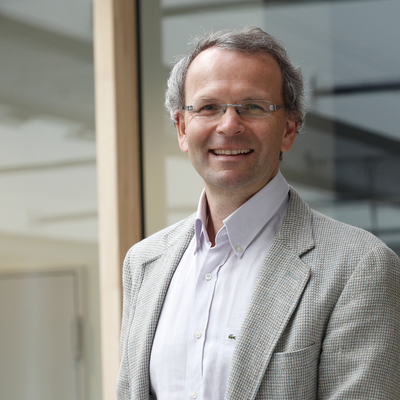Christof Niehrs awarded ERC Advanced Grant
The European Research Council (ERC) has announced the awarding of €653 million in funding in the 2017 call for ERC Advanced Grants. Professor Christof Niehrs from the Institute of Molecular Biology (IMB) in Mainz has received one of these highly prestigious awards. These grants go to established leaders to enable the pursuit of unproven ideas that have the potential to lead to major discoveries. Christof Niehrs is the Founding Director of IMB and will use the funding, worth €2 million, to pursue research into epigenetic gene regulation. To ensure that genes are expressed in the right cells and at the right time, cells employ epigenetic mechanisms, which alter gene activity without changing the sequence of the gene itself. One prominent epigenetic mechanism is the methylation of DNA. In this process, DNA sequences are modified through the addition of a small chemical group to one of the four bases in DNA, cytosine. When cytosines are methylated in the control regions of a gene, the affected gene is typically inactivated. To re-activate it, these epigenetic modifications have to be removed by the action of enzymes called DNA demethylases. This demethylation process is still poorly understood. Christof Niehrs and his colleagues will use the ERC Advanced Grant to probe how so-called long noncoding RNAs (lncRNAs) may act like a zip code to target the demethylation machinery to specific sites in the vast genome. As Christof explains: “This ERC grant gives us the opportunity to dive deeply into the world of RNA regulation of epigenetic states. Over the next five years, we want to open a new chapter in epigenetic regulation, especially in the stem cell pluripotency and differentiation.” The elucidation of lncRNA-mediated DNA demethylation will not only broaden the understanding of how cells regulate gene activity, it also holds the promise to tackle diseases. As each lncRNA is specific to a particular gene, control of inappropriately activated genes may become a matter of targeting the right lncRNA to restore gene control and thus health. Click here to read more in the press release (PDF)
